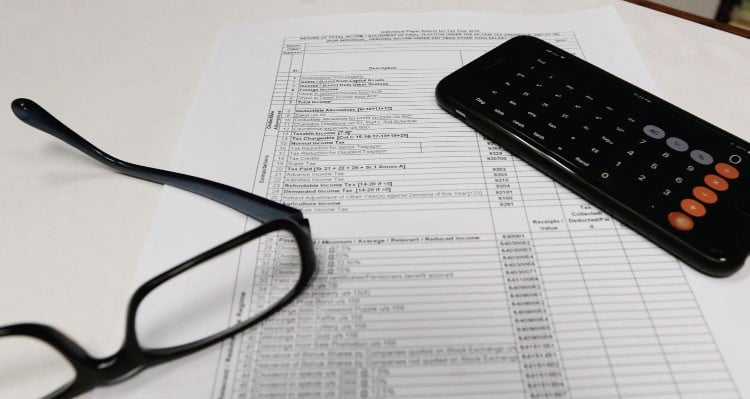
Taxes have to be collected but what if the collecting organisation is inefficient, outdated and corrupt?

In a special televised address urging tax evaders to declare hidden financial assets by the end of this month, Prime Minister Imran Khan observed that Pakistanis were the least tax paying nation of the world. In April last year, his predecessor, Shahid Khaqan Abbasi introduced his tax amnesty scheme by noting that just 1.2 million Pakistanis filed returns and only 0.7 million actually paid any tax. Similar statements from the high and mighty, tax experts and fiscal analysts can be traced back throughout the seventy-two years of our history.
Let there be no confusion, though. Everyone who makes a purchase in the market has to pay something to the state. This includes the entire population, including children buying toffees. These are the taxes whose burden is shifted to the final consumer; the so-called indirect taxes. Over 60 percent of taxes in Pakistan fall in this category. These taxes are extracted out of the people. There is no possibility to evade if you want to consume or use the stuff you are buying. It can only be avoided by not buying a good or service, something not always possible if life has to be sustained. Of the 40 percent shown in the name of direct taxes that are supposed to be voluntarily paid out of incomes, 68.5 percent is also extractive in nature, i.e. the withholding taxes. Mobile phone services and cash withdrawals are just two examples.
Does this mean that people only pay when they are forced to? It is said that some 47 percent of the Americans do not pay the Federal Income Tax either. Americans who don’t pay are not liable to pay because of incomes below the threshold. This is not the case in Pakistan. There are sectors such as agriculture, and persons and businesses enjoying Statutory Regulatory Order (SROs), that are legally not liable to pay. But the fact remains that millions of individuals and thousands of companies are liable to pay, but do not. For example, the ultimate force in the country, the military, was deployed not too long ago to make traders pay, but without any success. What is the psyche here?
Part of the explanation was implicit in Prime Minister Imran Khan’s speech when he described us as a most charitable nation. Though somewhat dated, a study by Arshad Zaman documented it as well. The common experience bears it out. The rising number of beggars at every traffic light, the thriving shrines, and a vibrant non-profit sector providing food, education, health care show it. These are the tasks that the state is supposed to perform.
A not inconsiderable number does not recognise the state. That is what the informal sector is all about. It goes back to the colonial days when the state symbolised foreign occupation. Paying up meant paying for the enemy. Then there are those who recognise the state but think it is un-Islamic. It is better to help the poor and the indigent directly than to pay taxes that might be spent on the undeserving. During General Zia ul Haq’s period, the leadership of this group had attempted to replace income tax with Zakat and Ushr. But for an inflexible Ghulam Ishaq Khan, the then finance minister, they would have carried the day. A sizeable segment of the elite thinks that if they have to provide for their own security, quality education, medicare, drinking water and other civic services, why should they pay up.
"I should pay for what I get" has been discussed in the literature as the benefit principle of taxation. In the dharna staged by the PTI in 2014, Imran Khan called for civil disobedience. The public burning of utility bills and the resolve not to pay for the corrupt state was a reference to the benefit principle: the public at large, according to this view, was not receiving the public services that they were entitled to as taxpayers. Mahatma Gandhi and Martin Luther King Jr. had given similar calls in colonial India and the United States, respectively. Originating in an essay by Henry David Thoreau, "Resistance to Civil Government", the civil disobedience was practised by the author who protested against slavery by refusing to pay taxes. In 2012-13, Arvind Kejriwal of the Aam Admi Party in India had led thousands in Delhi to not pay electricity bills.
While it may be justified as a form of political protest, the benefit principle has its limits to form the only basis of taxation. It is true that the purpose of taxing is to finance public services and, in all fairness, those benefitting more should bear proportionate liability. A road tax is a good example. Users pay for use. However, measuring the amount of benefit derived from major public expenditures is not possible. For example, how much does an individual benefit from defence expenditure, policing or debt servicing? Even in the case of road tax, while all vehicles pay the same for equal use, some damage the road more than the others. To the extent this happens, the principle of fairness is violated.
Let’s face it. Fair or unfair. Directly beneficial or not. No one likes paying taxes. Individuals and businesses will evade if the incentives are strong enough. Tax avoidance is perfectly legal and the bread and butter of all tax consultants. Taxes have to be collected, if necessary, by force. The problem is with the collecting organisation. It is inefficient, outdated and corrupt. Its contribution to the culture of tax delinquency is by no means small. How to change its own culture will be a major challenge before the newly set up National Development Council.
Asked about completing his income tax form, Einstein had said "This is a question too difficult for a mathematician. It should be asked of a philosopher."